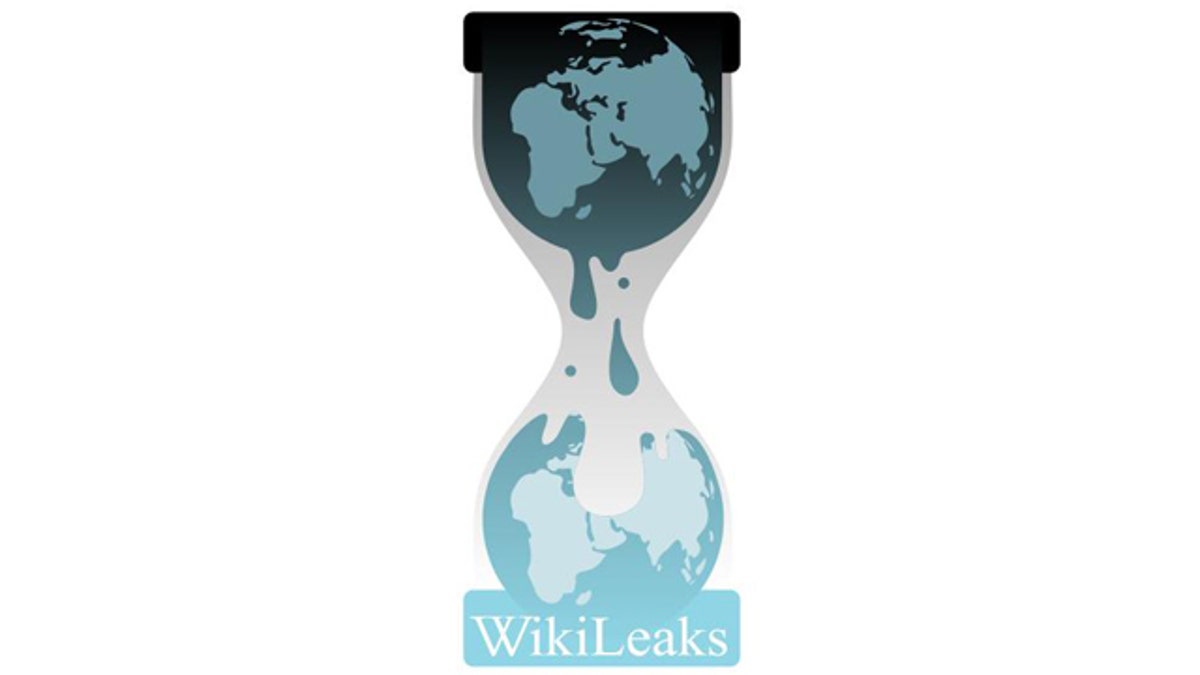
The logo for whistle-blower website WikiLeaks. (WikiLeaks.org)
Whistle-blower website WikiLeaks is rewriting freedom-of-information laws across Europe to make its open-info agenda legal – but its legal status nevertheless remains unclear.
The controversial site had operated out of Iceland, but has since broadened its operations into Sweden, showing its servers to the Associated Press on the grounds that the exact location not be revealed. The secretive website gives few details about its setup, but says its "servers are distributed over multiple international jurisdictions and do not keep logs. Hence these logs cannot be seized."
WikiLeaks frustrated and enraged U.S. government officials by posting more than 76,900 classified military and other documents, mostly raw intelligence reports from Afghanistan, on its website July 25.
And despite angry denunciations from top U.S. officials, who claim the documents put the lives of Afghan informants and U.S. troops at risk, they’re staying up.
"When you look at the legal situation it's hard to see that Swedish authorities can tell us to do anything, legally,” said Mikael Viborg, the owner of Swedish web-hosting company PRQ, to the Associated Press. Viborg said Swedish officials had yet to ask him to remove the content, but had no intention of complying should such a request arrive.
"They can ask us to do it out of goodwill, but I can tell you right now that we won't oblige."
WikiLeaks founder Julian Assange revealed Friday his site's connection to Swedish ISP, which also gained notoriety for hosting file-sharing site The Pirate Bay. But Swedish experts disagree about how safe WikiLeaks is in Sweden.
Rules on source protection are written into the Swedish constitution and effectively block individuals and government agencies from attempting to uncover journalists’ sources. But the law applies only to websites or publications that possess a special publishing license granting them constitutional protection, and WikiLeaks has not acquired the requisite paperwork, explained Swedish newspaper Sydsvenskan.
"To my mind, it is too simple to claim that all Wikileaks sources are totally protected in Sweden,” deputy Chancellor of Justice Håkan Rustand told the newspaper.
Meanwhile Assange continues to work on freedom of information laws across Europe, helping draft legislation approved Tuesday by Iceland's parliament that provides stronger protection for media sources and whistleblowers, the AFP reported.
The Icelandic Modern Media Initiative, or IMMI "aims to create an offshore safe haven for information, to add to transparency," wrote the AFP. Wikileaks made headlines in April by releasing a video of a U.S. Apache helicopter strike in Baghdad that killed two employees of the Reuters news agency and a number of other people.
"At the time, Iceland seemed to be the safest place to prepare for the release of the video and do the necessary fact checks," said Kristinn Hrafnsson, an investigative journalist with public broadcaster RUV, who has co-operated with Wikileaks.
WikiLeaks recently posted a huge encrypted file named "Insurance" to its website, sparking speculation that those behind the organization may be prepared to release more classified information if authorities interfere with them.
Viborg, a goatee-sporting Swede with a law degree and self-taught computer skills, said he didn't know for sure whether that file was hosted on the servers in Solna, though he added that "I assume it is."
He said PRQ had worked with WikiLeaks since 2008, but always through a Swedish middleman instead of direct contacts. PRQ doesn't own the WikiLeaks servers in Solna, but provides the Internet service, electricity and other services, including restarting the servers when needed, he added.
PRQ treats Wikileaks like any other client, Viborg said, but admitted he has personal sympathies for the website.
"The freedom of expression and the transparency that is required in a democratic society, I think they are important," he said.
The Associated Press contributed to this report.








































